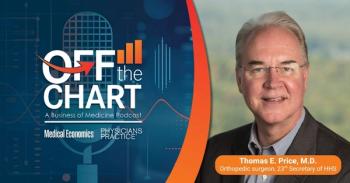
Next Steps for Physicians and Their Limited Partnerships
Here are some specific dos and don'ts when it comes to physicians using limited partnerships in a legally defensible way.
In our previous discussion of
This week we conclude our discussion of the tool and its most defensible use with some specific "dos" and "don’ts" to help you use an LP in a legally defensible way.
Do:
• Consider having each partner make a minor capital contribution to the LP upon formation. This contribution supports the stated business purpose and reality of the LP being a joint enterprise to which all partners have contributed.
• Always strive to operate the LP within the terms of the partnership agreement. If this proves impractical or if the LP needs to be changed to accommodate a specific unforeseen use, have your legal counsel amend the partnership agreement to the changes required in the LP’s operation in order to avoid an administrative dissolution (dissolved by force) of the LP.
• Transfer valuable, exposed personal assets into the partnership. In addition to cash, stocks, and bonds and other investment vehicles your LP may hold your interest in income-producing real estate (if properly insulated in one or more LLCs), and in some cases even valuable business equipment such as that necessary to operate a lab, records business, or other related enterprise. If any of these items are capable of generating liability they too should be “safety wrapped” in an LLC, and that interest assigned to the LP, as I have suggested with real-estate.
• Memorialize lease agreements concerning LP owned assets in writing. All real estate and equipment held by the LP (through an LLC) should have leases drawn up which are supported by billing invoices to the lessee (even it it’s yourself or a business you own). This both supports the valid business purpose of the LP, the write-offs you may choose to claim (consult your accountant) for payments to the LP for such leases.
• File any required gift tax returns in a timely manner. In some cases your CPA and/or estate planner may transfer wealth through “gifting,” the transfer of a portion of your interest in the LP to a family member or other beneficiary. Should you choose to avail of these benefits, please do so with the guidance of a professional accountant familiar with the process. Even if no tax is actually owed, the filing of such a return with full and proper disclosures may be of benefit, as it starts a three-year statute of limitations, after which the IRS is precluded from challenging the valuation and assignment of said gifts.
Don’t:
• Transfer personal (non-business) assets and checking accounts into your LP. The “stated business purpose” of the LP we are discussing is the management of your assets and investments. The fatal flaw of transferring non-income producing or appreciating assets, such as your personal residence, furniture, and personal automobiles creates the appearance that the LP is being used for personal, as opposed to business, purposes. More importantly, it actually carries the liability that each of those items may carry back into the LP, defeating the protection for which it was created.
• Use the LP to pay personal expenses directly. Instead, make a formal pro-rata distribution from the partnership to all partners if you need to withdraw cash from it. Then use the distribution to pay for the expense. Whenever possible, avoid “non-pro-rata” distributions to any one partner. Instead, make proportionate distributions to all partners based on their percentage of ownership. When required by emergency or opportunities, non-pro-rata distributions (to just one partner) are sometimes better structured as a "loan" secured by a formal note with interest due back to the partnership and hence, the other partners.
• Include ERISA, “qualified,” and pension type plans, such as IRAs, in your LP. These types of assets are usually referred to as “qualified plans or accounts” and often have legal protection and tax benefits that will be negated by changing title away from you.
There are entire books written about the details of the LP and its uses. Nothing shared in the limited confines of this forum and our last two articles is tax or legal advice specific to your facts. It is, however, a good entry point to understanding the use of this powerful tool and how it applies to your family.
Find out more about Ike Devji and our other
Newsletter
Optimize your practice with the Physicians Practice newsletter, offering management pearls, leadership tips, and business strategies tailored for practice administrators and physicians of any specialty.








